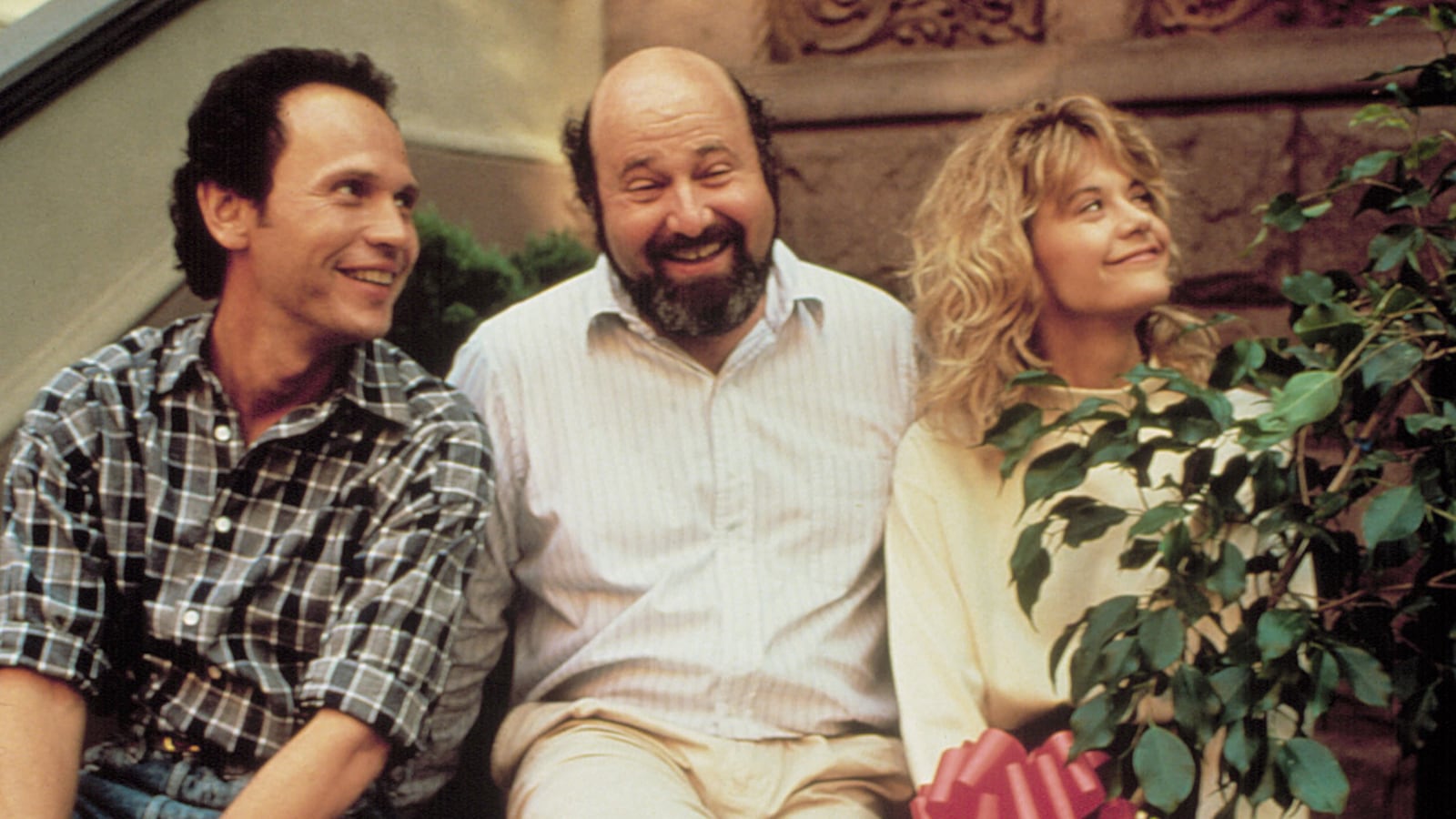It’s just horrible. It’s so sad. I couldn’t sleep last night.

I was just talking to a very good friend of Nora’s who was with her right until the end, and she didn’t let anyone know about her health until the end. It was really kept very quiet. It’s the way she was. She always looked at everything positively and embraced life. She never complained about stuff or was one of those people who said “Oh poor me.”
I’m one of those people who’s out there with everything, so when we did When Harry Met Sally, she said, “You know, you don’t have to tell everybody everything that’s going on the moment it’s going on. You don’t have to.” That became a line that we put in the film, when Meg says to Billy, “You don’t have to say how you’re feeling the moment you’re feeling it all the time,” and Billy says to Meg, “You keep everything inside—you don’t let anything out!” Nora was like that. She never complained and was always upbeat and looking to have fun.
She was so smart, so funny, and so witty. The thing you always got from her was that she wanted everybody to enjoy things as much as she did, so if you had dinner with her, she’d always say, “Try that!” and try to orchestrate whatever fun you had. And she was always right! We put a line in the film where Billy says about Meg, “She orders things in a way where even the chef didn’t realize how good it could be.” And she was like that. The greatest, most fun times I’ve ever had were going over to her house for dinner parties, because you knew you were going to get great food and great conversation, since all her friends were so smart and funny. The thing that you always came away with every time you met her was, “Boy, I’m glad I was in her presence and got to hang out there.” It was one of the great “hangs” of all time.
I think the reason why When Harry Met Sally works is that there’s a lot of Nora in Sally. It was an idea I had based on the fact that I had been single for 10 years and making a mess of my single life, and started thinking about how men dated and whether sex gets in the way of a friendship. I started talking to Nora about it and she said, “There’s definitely a film in this.” I knew I needed to have a woman’s voice, and I was lucky enough to pick the smartest, funniest woman on the planet.
We started the process on When Harry Met Sally by her interviewing me and my partner and friend Andy Scheinman, and just finding out what men think about and what goes on inside our heads. She interviewed us like a journalist, got all these thoughts down, and that became the basis for Harry, and she became the basis for Sally. A lot of times, she would do things she wasn’t even aware of and I’d say, “My god, Nora, we need to put that in [the movie]!” We’d go to restaurants while we were working on the script and she’d order just the way that Sally does in the movie. Definitely Sally was an extension of her and Harry was an extension of me.
When When Harry Met Sally came out, I went to this film festival in Deauville, France, and spent a lot of time with Nora and Nick (Pileggi, her husband) there. We had a lot of meals and she always ordered the best thing. She was always thin, but would always get everyone to eat! I guess she lived vicariously through us.
We were in Paris where they had all Monet’s panels of Water Lilies, and we all stood in the middle of the room. She said, “At the count of three, let’s all point to the one we think is the best!” So we went, “One, two, three!” And we all pointed. I just thought, “How funny is this? Here we are standing in this museum with this brilliant artist and we’re all pointing at things!”
Her great gift was her writing ability. It’s one thing to direct a film but what made Nora’s work so special was her gift for language, and what made her words so great was she had an incredible capacity for observation, and she was able to express it in a very clever way. It wasn’t just that she was clever or funny, but that there were truths underneath there; it was all based on very funny, truthful observations on how men and women treat each other. And she had this great gift for being able to express those observations in a very curvy way.
The reason she became such a good director was similar to the way she was able to make a meal: she knew what she wanted, what would taste good, and what would work. She had such a great sense of style, and what works.
Not everyone has the talent she had. I see someone like a Lena Dunham coming along and think she probably owes a lot to Nora Ephron. She’s trying to capture what it’s like to be a young girl struggling just out of college, and I think she really owes a lot to Nora.
But the thing she said to me that I’ve really taken into my life is, “You don’t always have to express every emotion you’re having when you’re having it.” There’s a right time to talk about certain things, and you don’t need to be out there all the time just spewing. It’s how you become an adult, and I think she helped me see that.
Interview by Marlow Stern






